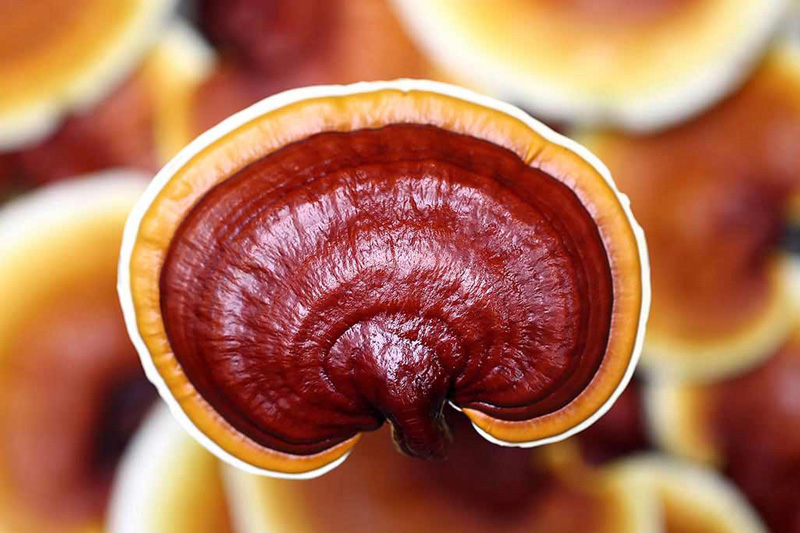Introduction
Mushrooms have long been used in traditional medicine systems for their potential health benefits. Reishi mushrooms, scientifically known as Ganoderma lucidum, have gained widespread recognition as one of the most potent functional mushrooms. Reishi mushrooms are known for their potential to promote overall health and well-being. In this comprehensive guide, we will explore the numerous benefits of Reishi mushrooms, from their historical use in traditional medicine to their modern applications and scientific research.
Introduction to Reishi Mushrooms
Reishi mushrooms, often referred to as the “mushroom of immortality,” have a long history of use in traditional Chinese medicine, dating back over 2,000 years. These distinctive-looking mushrooms have a shiny, reddish-brown cap with a woody texture, and they are typically found growing on dead or decaying hardwood trees. Over the years, Reishi mushrooms have garnered considerable attention for their potential health benefits, which range from immune system support to stress reduction.
The Active Compounds in Reishi Mushrooms
One of the primary reasons behind the remarkable health benefits of Reishi mushrooms is their rich composition of bioactive compounds. Some of the key bioactive compounds found in Reishi mushrooms include:
- Polysaccharides: Reishi mushrooms are abundant in complex carbohydrates, known as polysaccharides. These compounds have been extensively studied for their immune-boosting properties and potential to support the body’s defense mechanisms against various illnesses.
- Triterpenes: Triterpenes are a class of compounds found in Reishi mushrooms that contribute to their anti-inflammatory and antioxidant properties. These compounds play a vital role in reducing oxidative stress in the body.
- Ganoderic Acids: Ganoderic acids are specific to Reishi mushrooms and are believed to be responsible for their adaptogenic properties. These compounds may help the body adapt to stress and maintain balance.
- Amino Acids: Reishi mushrooms contain essential and non-essential amino acids, which are the building blocks of proteins. These amino acids play a role in various bodily functions, including immune system support and muscle repair.
- Minerals and Vitamins: Reishi mushrooms are a source of essential minerals such as potassium, calcium, and magnesium, as well as vitamins like vitamin D2 and B-vitamins, which are crucial for overall health.
Health Benefits of Reishi Mushrooms
- Immune System Support: Reishi mushrooms are renowned for their immune-boosting properties. The polysaccharides and other bioactive compounds in Reishi mushrooms can stimulate the production of immune cells, helping the body defend against infections and illnesses. Studies have shown that Reishi can enhance the activity of natural killer cells, which play a key role in immune defense.
- Adaptogenic Effects: Reishi mushrooms are classified as adaptogens, which means they can help the body adapt to stress and maintain balance. They support the adrenal glands, reducing the effects of chronic stress and promoting overall well-being. This adaptogenic quality makes Reishi mushrooms a valuable tool in managing stress and anxiety.
- Antioxidant Properties: The triterpenes and other compounds in Reishi mushrooms act as powerful antioxidants. Antioxidants help neutralize free radicals in the body, reducing oxidative stress and the risk of chronic diseases. The antioxidant properties of Reishi mushrooms may contribute to their potential anti-aging effects.
- Anti-Inflammatory Effects: Chronic inflammation is a common underlying factor in many health conditions, from cardiovascular disease to autoimmune disorders. Reishi mushrooms’ triterpenes and other compounds have demonstrated anti-inflammatory effects, potentially reducing the risk of chronic inflammation-related diseases.
- Cardiovascular Health: Reishi mushrooms have been shown to support cardiovascular health by helping to lower blood pressure and cholesterol levels. They may also improve blood circulation, reducing the risk of heart disease.
- Cancer Prevention: While more research is needed, some studies have suggested that Reishi mushrooms may have anti-cancer properties. Their ability to enhance the immune system and suppress tumor growth is of particular interest in cancer prevention and treatment.
- Liver Health: Reishi mushrooms have hepatoprotective effects, which means they can help protect the liver from damage caused by toxins and various liver diseases. This makes them valuable in supporting liver health.
- Respiratory Health: Reishi mushrooms have been used traditionally to alleviate respiratory conditions like asthma and allergies. Their anti-inflammatory and immune-boosting properties may provide relief for individuals with these issues.
- Better Sleep: Reishi mushrooms can promote better sleep by reducing anxiety and stress. They may also improve the quality of sleep, helping individuals get more restorative rest.
- Skin Health: The antioxidant properties of Reishi mushrooms may contribute to improved skin health by reducing oxidative damage and promoting a more youthful appearance. Some skincare products now include Reishi extracts for these benefits.
- Allergy Management: Reishi mushrooms may help alleviate allergy symptoms by modulating the immune response. This can be especially valuable for those suffering from seasonal allergies.
- Weight Management: Some studies have suggested that Reishi mushrooms can aid in weight management by regulating the body’s metabolism and helping to maintain a healthy body weight.
How to Incorporate Reishi Mushrooms into Your Diet
Reishi mushrooms can be consumed in various forms to reap their health benefits. Here are some popular ways to incorporate Reishi mushrooms into your diet:
- Dried Mushrooms: You can purchase dried Reishi mushrooms and use them to make teas or broths. Simply simmer the dried mushrooms in hot water for an earthy, slightly bitter tea.
- Powdered Supplements: Reishi mushroom supplements are widely available in powdered form. You can mix the powder into smoothies, beverages, or sprinkle it on food.
- Tinctures and Extracts: Reishi mushroom tinctures and extracts are concentrated forms that can be taken sublingually (under the tongue) for quick absorption.
- Capsules and Tablets: If you prefer a convenient option, Reishi mushroom supplements are available in capsule or tablet form. These are easy to take with a glass of water.
- Mushroom Coffee or Tea: Some companies offer mushroom coffee and tea blends that combine Reishi mushrooms with other beneficial mushrooms, herbs, and spices for a delightful beverage.
- Culinary Use: While Reishi mushrooms have a slightly bitter taste, they can be sliced and added to soups, stews, or stir-fries for a savory twist to your dishes.
Possible Side Effects and Precautions
Reishi mushrooms are generally considered safe for most people when consumed in moderation. However, there are a few potential side effects and precautions to be aware of:
- Allergic Reactions: Some individuals may be allergic to Reishi mushrooms, so it’s important to start with a small dose to test for any adverse reactions.
- Stomach Upset: In some cases, Reishi supplements can cause mild digestive issues like nausea or diarrhea. If you experience these symptoms, consider reducing your dose or discontinuing use.
- Blood-Thinning Effects: Reishi mushrooms may have blood-thinning properties, so individuals taking blood-thinning medications or with bleeding disorders should consult a healthcare professional before using Reishi supplements.
- Pregnancy and Breastfeeding: The safety of Reishi mushrooms during pregnancy and breastfeeding has not been well studied, so it’s best to avoid them during these periods.
- Drug Interactions: Reishi supplements may interact with certain medications, so it’s essential to consult with a healthcare provider if you’re taking prescription drugs.
Choosing Reishi Mushroom Products
When selecting Reishi mushroom products, it’s important to choose high-quality options to ensure you receive the maximum benefits. Here are some tips for choosing the right Reishi supplements or products:
- Check for Standardization: Look for products that are standardized to contain a certain percentage of key compounds, such as polysaccharides or triterpenes. This ensures that you’re getting an effective dose.
- Quality Brands: Choose reputable brands that prioritize quality and purity in their products. Read product reviews and do some research before making a purchase.
- Certifications: Some products may carry certifications for organic or quality standards. These certifications can be a good indicator of product quality.
- Avoid Fillers and Additives: Check the product’s ingredient list to ensure it doesn’t contain unnecessary fillers, additives, or artificial ingredients.
- Form of the Product: Consider the form of the Reishi product that best suits your preferences, whether it’s capsules, powders, tinctures, or dried mushrooms.
Conclusion
Reishi mushrooms are a fascinating and highly regarded functional mushroom that offers a wide array of potential health benefits. From immune system support to stress reduction, the bioactive compounds in Reishi mushrooms have been the subject of extensive research, and their traditional use in Chinese medicine adds to their credibility. While Reishi mushrooms are generally safe for most individuals, it’s crucial to exercise caution and consult with a healthcare professional if you have any underlying health conditions or concerns. Whether you choose to consume Reishi mushrooms in supplement form or incorporate them into your culinary creations, these versatile fungi can be a valuable addition to your health and wellness regimen. With their rich history and promising modern research, Reishi mushrooms continue to captivate the world of natural health and nutrition.

